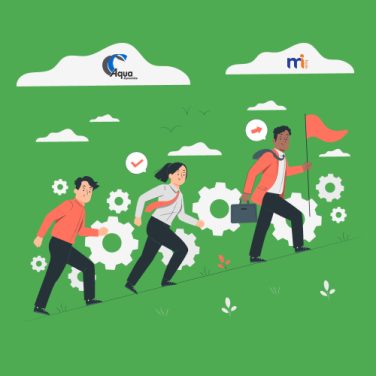In today’s rapidly evolving workplace, AI for employee engagement stands as a revolutionary force reshaping HR strategies globally.
At its core, AI in this context involves utilising machine learning and natural language processing to automate and enhance workplace communication, performance management, and employee feedback mechanisms.
Organisations are increasingly turning to AI to streamline HR processes, maximise employee satisfaction, and strengthen overall engagement.
Overview of AI in HR
AI’s integration into HR represents a shift from traditional approaches to a data-driven paradigm that drives operational efficiency and strategic decision-making. AI tools can manage repetitive tasks, freeing HR professionals to focus on higher-order challenges.
Furthermore, these technologies empower decision-makers with real-time analytics, fostering a culture that values transparency and inclusivity by addressing biases inherent in human-led assessments.
Why employee engagement matters

Employee engagement is crucial for the sustained success of any organisation. It reflects the emotional commitment and effort employees are willing to invest, impacting productivity, turnover rates, and innovation. By implementing AI-driven solutions, companies can unlock employee potential, enhance team productivity, and cultivate a responsive, agile work environment.
AI offers tangible methods of improving employee well-being monitoring and engagement levels by providing timely insights and fostering an environment of continuous feedback and improvement.
This guide will delve into the numerous dimensions of integrating AI into HR practices, exploring not only its benefits but also implementation hurdles and strategic recommendations for successful adoption.
Benefits of AI in HR
The integration of AI for employee engagement introduces several strategic benefits.
Firstly, AI enhances decision-making by processing vast amounts of data-driven insights with speed and accuracy, which is a far cry from traditional manual methods. For instance, AI tools, such as those offered by MiHCM, provide real-time performance data and insights that help HR teams make informed decisions about employee management and engagement strategies.
Additionally, AI fosters operational efficiency by automating repetitive tasks, allowing HR professionals to focus on strategic initiatives that directly impact employee satisfaction. It ultimately reduces the time spent on manual, mundane tasks and redirects energy towards more impactful roles, such as nurturing company culture and personal employee interactions.
Moreover, AI-driven HR analytics for better decision-making empowers organisations to dive deep into workforce data, uncovering patterns and insights that were previously elusive. This is particularly useful for identifying employee engagement trends and predictors of turnover, which can inform specific interventions to enhance retention and satisfaction.
AI tools and technologies
A diverse array of AI tools and technologies is employed within HR practices to bolster employee engagement.
MiHCM solutions offer advanced features such as HR analytics that provide insights into workforce dynamics, diversity, and productivity. These tools help companies provide equal opportunities and maintain an inclusive work environment, contributing to higher engagement levels among employees.
Employee self-service functionalities have been transformed by AI, empowering employees with direct access to information and the ability to perform HR-related tasks independently. This empowerment leads to greater job satisfaction and engagement, as employees feel more in control of their work experience and career progression.
Real-time analytics and feedback mechanisms
AI’s capability to provide real-time analytics and feedback mechanisms is another defining feature that enhances employee engagement.
AI-powered solutions enable HR teams to implement immediate feedback loops through pulse surveys and sentiment analysis, which are crucial for understanding employee morale and acting upon it promptly.
Real-time analytics also aid in employee well-being monitoring. By analysing sentiment data, AI tools help organisations identify stressors and implement personalised well-being interventions that promote a healthy and engaged workforce. This proactive approach can significantly enhance employee satisfaction and reduce turnover rates, ensuring a stable and motivated team.
Comparing different approaches
While the core objective of using AI in HR is to enhance employee engagement, the approaches can significantly vary across organisations. Let’s compare how different strategies and tools yield unique outcomes:
- Analytical depth: Companies adopting comprehensive analytics platforms benefit from in-depth workforce analysis and precise predictive insights. These tools are adept at processing vast datasets to inform nuanced HR decisions, improving overall engagement and performance.
- Automation focus: Organisations implementing AI assistants tend to prioritise process automation, optimising time efficiency and operational costs. This approach facilitates streamlined HR operations, empowering employees through self-service access to information.
- Sentiment-driven engagement: Enterprises integrating AI-driven sentiment analysis, such as those using MiA, focus on maintaining a healthy workplace morale. By actively monitoring emotional cues, these companies implement personalised well-being strategies, nurturing a motivated and involved workforce.
The variability in AI application offers organisations the flexibility to tailor their HR strategies to fit unique needs while achieving overarching engagement goals.
These transformations facilitated by AI demonstrate not only a commitment to improving employee engagement but also a dedication to evolving with technological advancements. The measurable impacts are evident, with consistent enhancements in satisfaction, productivity, and operational efficacy across sectors.
Ethical considerations in AI use
AI in employee engagement offers numerous benefits, yet it also raises significant ethical questions.
- Bias and fairness: AI systems can inadvertently perpetuate existing biases found in the data used for training. Organisations must employ measures such as diverse data sets and algorithm audits to reduce and monitor bias in AI-driven decision-making processes.
- Transparency: Employees should be made aware of when and how AI is used in HR processes. Open communication and detailed explanations of AI functionalities can foster a culture of transparency and trust, as seen in successful AI deployments.
- Human oversight: Despite the advanced capabilities of AI, human judgment remains pivotal, particularly in sensitive scenarios. AI should complement rather than replace human decision-making, allowing for the integration of ethical considerations that AI may overlook.
Overcoming data security challenges
Protecting sensitive employee data is paramount as companies integrate AI technologies. Robust data security protocols must be established to guard against breaches and misuse of information.
- Data privacy regulations: Compliance with data privacy laws mandate strict handling and processing of personal data. Organisations must ensure that AI systems adhere to these regulations to maintain employee trust and legal compliance.
- Secure data handling: Implementing encryption and access controls are vital to securing employee information. Strategies such as anonymisation and tokenisation can help further protect data integrity while allowing AI systems to perform their analyses effectively.
- Regular audits and evaluations: Continuous monitoring and periodic audits of AI systems are essential in ensuring they maintain compliance with internal policies and external regulations. Regular evaluations can detect vulnerabilities and facilitate timely updates, reinforcing data security protocols.
The future of AI in HR

AI is expected to deepen its role in personalisation, adapting to the unique needs and preferences of each employee, fostering higher engagement rates.
The scalability of AI solutions will allow organisations of all sizes to enhance their employee management practices, with MiHCM’s suite of solutions being prime examples of AI’s ability to transform human resource processes.
Real-time productivity insights, as offered by solutions like MiHCM Data & AI, will become standard, driving continuous improvement in the way companies nurture and retain talent.
Leveraging AI responsibly is crucial. Organisations must ensure that their AI implementations are ethical, transparent, and inclusive, addressing concerns about bias and privacy. By doing so, they can build trust within their workforce and ensure compliance with privacy regulations.
As AI continues to integrate into HR processes, analytics-based decision-making will guide future strategies. This evolution promises enriched employee engagement, boosted productivity, and an agile, future-ready workforce.
AI’s contribution to transforming employee engagement is undeniable. Embracing these intelligent technologies allows businesses to stay ahead in a competitive market by fostering a work environment centred on growth and development. Whether it’s through streamlined recruitment, enhanced well-being monitoring, or predictive analytics, AI offers the tools needed to create a more dynamic and supportive workplace. For a deeper understanding, explore resources on enhancing employee experience with AI Và AI-driven innovations.



